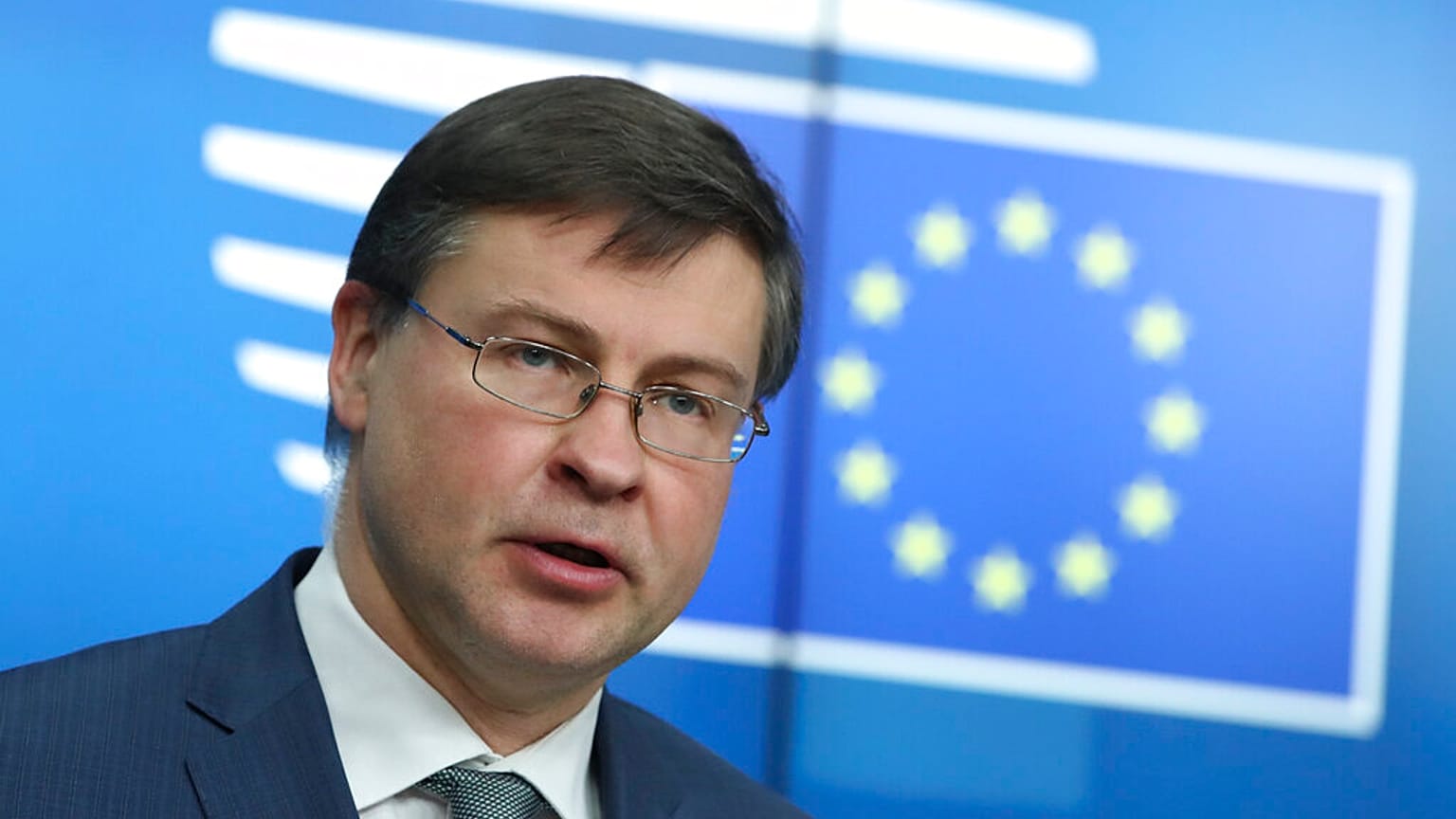The future of the agreement had already been thrown into doubt after Beijing imposed sanctions on several Members of the European Parliament.
The EU has suspended efforts to ratify an investment deal with China because of tensions between Brussels and Beijing.
The agreement was reached in principle last December but had yet to receive the necessary endorsement from EU institutions, such as the European Parliament.
"We have for the time being [...] suspended some efforts of political awareness on the part of the Commission because it's clear that, in the current situation, with the sanctions of the EU against China and the Chinese counter-sanctions, including against Members of the European Parliament, the environment is not conducive to the ratification of the agreement," Valdis Dombrovskis, executive vice-president of the European Commission, told French news agency AFP in an interview.
"We cannot ignore the wider context of relations between the EU and China."
"In any case, the underlying reasons for the agreement [...] are still very present, there is always an asymmetry in relations [with China]. This agreement would help us resolve this asymmetry."
The future of the deal had been already thrown into doubt after a recent diplomatic showdown between Brussels and Beijing.
In March, the European Union imposed the first sanctions against China in more than 30 years. The raft of measures, designed in coordination with Western allies, targeted four Chinese officials and one entity believed to be involved in the alleged human rights violations of the Uyghur Muslim minority.
China reacted swiftly and furiously: in an almost instantaneous counter-strike, the Chinese Foreign Ministry slapped sanctions on ten European individuals, including five Members of the European Parliament, and four entities, among which was the European Parliament's subcommittee on human rights.
Beijing also blacklisted democratically elected officials from the UK, the US and Canada. In total, more than 30 individuals and entities were sanctioned.
As a result, three of the main political parties in the European Parliament (S&D, Renew Europe and Greens), which together hold 45% of the seats, announced that, as long as the sanctions remain in place, the parliament will refuse to even open the debate for ratification.
As co-legislators alongside the Council, MEPs have the final say on the agreement.
An EU official sought to further clarify Dombrovskis's words.
"The agreement needs to be now legally reviewed and translated before it can be presented for adoption and ratification. However, the ratification process of the [investment deal] cannot be separated from the evolving dynamics of the wider EU-China relationship," the official told Euronews.
"In this context, Chinese retaliatory sanctions targeting Members of the European Parliament and an entire parliamentary committee are unacceptable and regrettable. The prospects for the [investment deal's] ratification will depend on how the situation evolves. So not quite suspended."
A controversial deal
An agreement on the investment deal was reached in principle at the end of December 2020 after seven long years of negotiations.
The breakthrough was made possible thanks to a deliberate and forceful push from German officials during the country's six-month presidency of the Council of the EU. The effort materialised in an eleventh-hour call between Chinese President Xi Jinping and European Commission President von der Leyen, European Council President Charles Michel, German Chancellor Angela Merkel and French President Emmanuel Macron.
The draft text intends to create balanced EU-China trade relations by making Beijing commit to a greater level of market access for EU investors and to fair treatment for EU companies - what the European Commission calls the "level playing field". The deal also includes provisions on state-owned enterprises and subsidies.
According to the Commission, "for the first time, China also agreed to ambitious provisions on sustainable development, including commitments on forced labour and the ratification of the relevant ILO (International Labour Organization) fundamental Conventions".
The accelerated conclusion of the investment deal, in particular the assurances about labour rights, was met with criticism, scepticism and even disbelief among most Members of the European Parliament.
The Commission estimates that foreign direct investment from the EU to China has reached more than €140 billion over the last 20 years, while investment from China to the bloc totals almost €120 billion.
The main sectors where EU companies invest in China are the automotive sector, basic materials (including chemicals), financial services, agriculture/food and consumer products.















